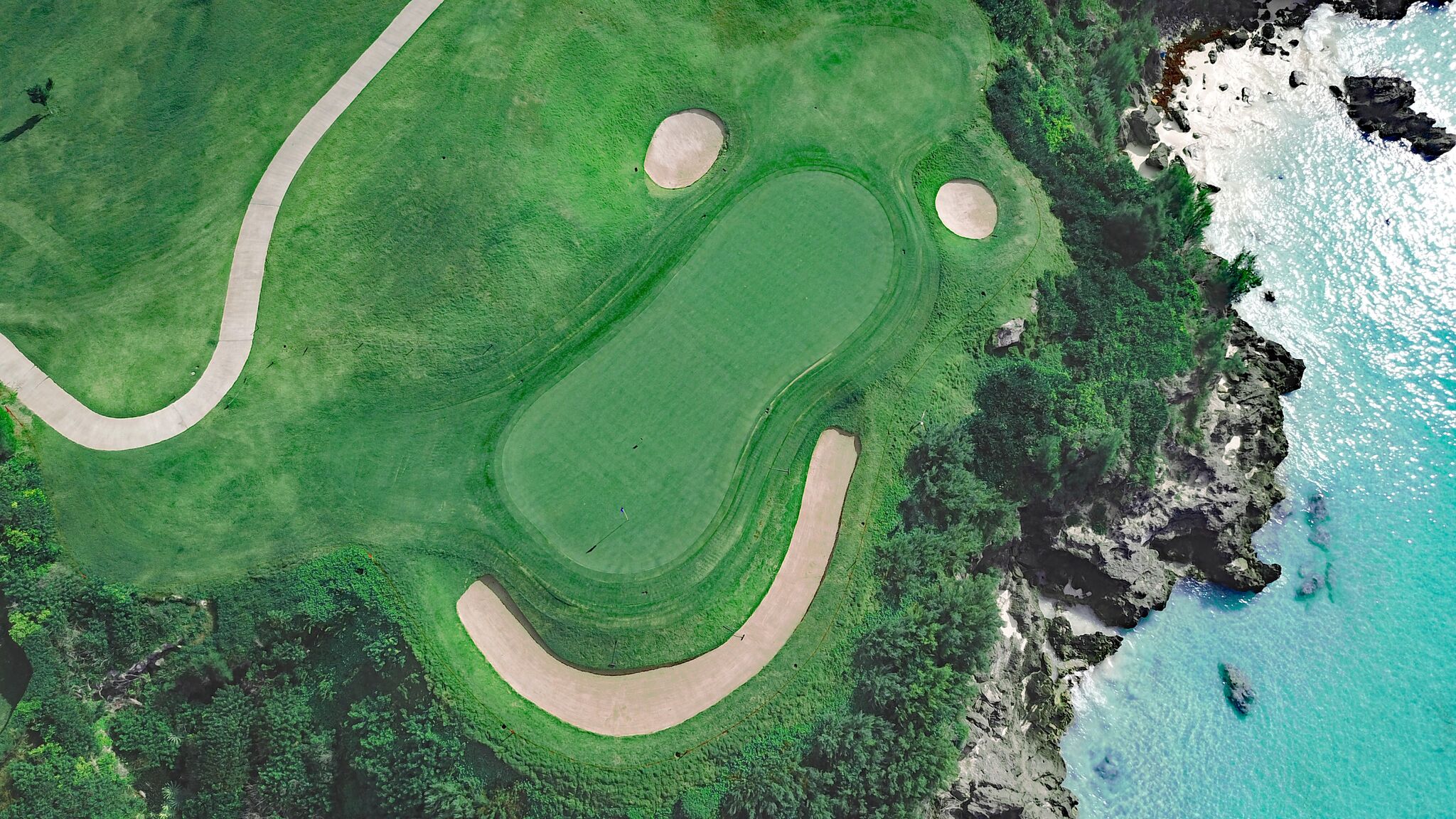
Of all the islands famous for golf around the world, Bermuda may be the most underrated.
The mid-Atlantic destination has done its best to grab notoriety from golfers and has already captured the PGA Tour’s attention via the Butterfield Bermuda Championship, which will be held at part of Tour’s Fall Series Oct. 27-30 at the sublime Port Royal Golf Course in Southampton on the island’s western coast.
A field of 132 players will be competing against each other and the course for a purse of $6.5 million.
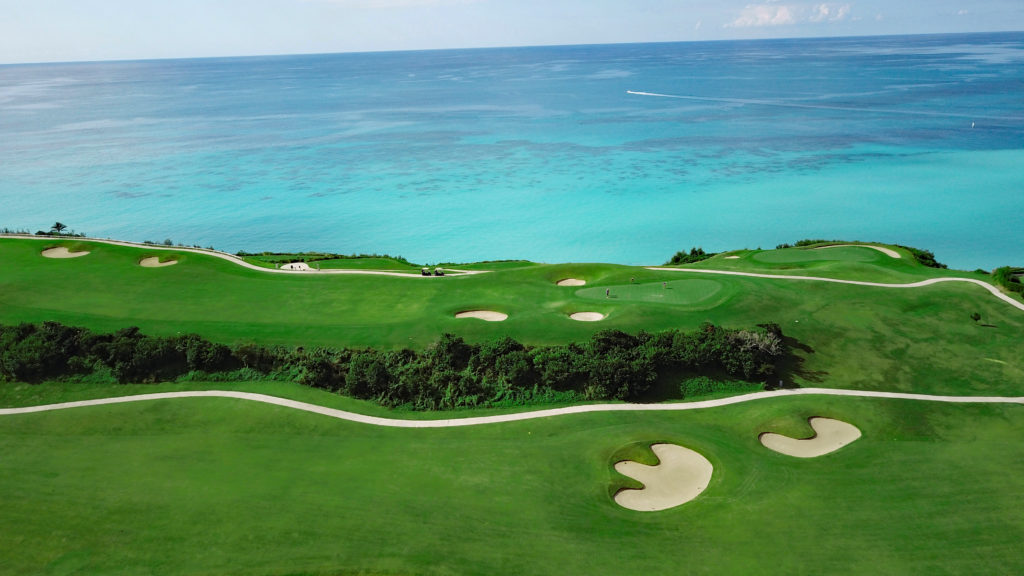
Port Royal Golf Course
Port Royal’s history
Robert Trent Jones Sr. designed Port Royal, which opened in 1970. It has since undergone two major renovations, first by Jones in 1995 and more recently a major redo as part of a $14.5 million project by his protégé Robert Rulewich just prior to hosting the 2009 PGA Grand Slam of Golf.
That tournament, which matched the winners (or their representative) from the previous season’s majors, was contested at Port Royal until it was discontinued after the 2014 rendition. The Butterfield Bermuda Championship picked up the island’s PGA Tour mantle in 2019 as part of the 2020 season and has carried it well ever since.
Port Royal is a fixture among the ranking of the world’s greatest public tracks. Set atop old farmland overlooking the Atlantic Ocean, it provides some of the best views in golf.
The course is short by Tour standards, playing at just 6,842 yards from the back set of tees and is a par-71, but elevation changes and the site’s constant winds, oftentimes from different directions throughout the round, make up Port Royal’s true defense.
Success in scoring at any level of golf proficiency is accomplished by using the wind to move the ball left and right, finding flags tucked around corners and behind the many bunkers. On almost every par-4 or par-5 there are bunkers staggered in such a way that it will make the golfer think twice about their target line and club selection.
Rulewich’s renovation work returned the course to Jones’ wide-open design, accomplished by removing nearly 1,500 Casuarina pines and creating a links-like feel on top of tall bluffs along the ocean. Lakes were constructed to assist with a state-of-the-art irrigation system, and the course was lengthened by nearly 300 yards to make it the longest in Bermuda.
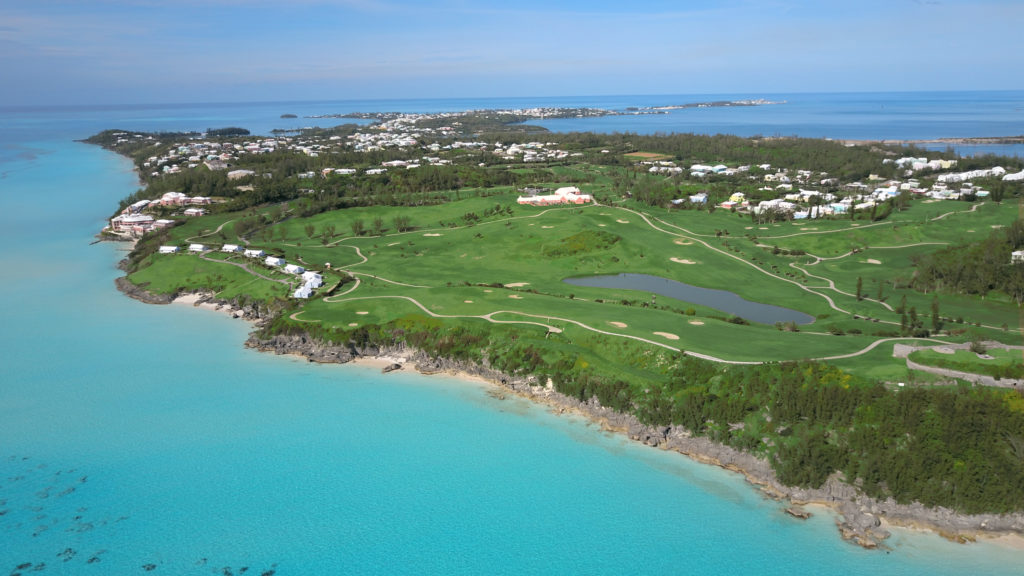
Port Royal’s differing challenges
Port Royal Golf Course has a split personality. The clubhouse is perched on the highest point of the course and serves as a dividing point between most of the front nine and the back. The first seven holes are partially guarded against the ocean wind as play is through a lush low point, giving the appearance of a tropical inland golf course.
As you make your way to the putting surface on the par-5 seventh hole, conditions abruptly change both visually and with the wind. You are no longer protected by the hills, and Port Royal Golf Course becomes dramatically more beautiful with the light-blue ocean in full view.
At the 213-yard eighth, golfers take aim at an infinity-edge green perched upon the ocean cliff. From that point on, you will enjoy an ocean view from at least part of every hole that follows.
The course begins to peak with the 412-yard 15th hole, a dogleg-right with the left side guarded by two large bunkers. From the tee the hole tricks players into thinking the landing area is more manageable than it really is. The wicked, downhill approach starts next to the old Whale Bay Battery, a 19th-century British fort, and plays to a long, narrow putting surface with the ocean as a backdrop.
Things come full circle when you tee off on the 16th hole. There aren’t many golf courses in the world with this kind of view, and the hole plays tee-to-green on a pair of ocean cliffs with the Atlantic swirling below to the left. Carded at 235 yards from the tips, there is nothing subtle about this beauty.
The putting surface is relatively small and fairly narrow, with bunkers on the front and rear left of the green and a pot bunker and a low, tightly mown basin forming the bailout area to the right.
Port Royal Golf Course really fits the bill as a “great resort golf course.” The routing plays over hilly terrain and is quite playable, with no extended or unfair forced carries. Jones was so proud of the design that he said that it’s the best course he fashioned outside of the United States.
No golf trip to Bermuda would be complete without visiting Port Royal Golf Course.
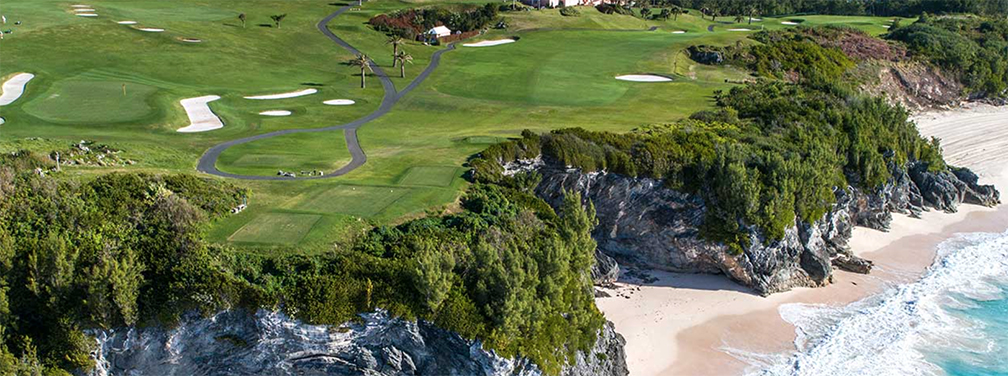
Mid Ocean Club
Other splendid and memorable golf options in Bermuda
Bermuda, the 21-mile-long outcropping in the middle of the north Atlantic Ocean, is less than two hours from America’s East Coast. There are eight golf courses on the island in total, the highest concentration of courses in the world for a country of its size.
Here are three other great tracks for you to consider when traveling to the most populous of the British overseas territories.
Mid Ocean Club, Tucker’s Town, St. George’s Parish
Mid Ocean Club is ranked No. 33 among all courses outside the United States by Golf Digest, even higher than Port Royal, and is a haven for course design aficionados. It’s the lone international design of famed Golden Age architect Charles Blair Macdonald and is also credited to his assistant Seth Raynor, who according to ship records, made most of the trips to the site.
Macdonald and his partners bought a handful of onion and potato fields for the course, which opened in 1921 and was conceived as a draw to the island for Americans looking for respite in the Prohibition Era. Macdonald’s classic template holes like Biarritz, Redan, and Cape are peppered throughout, mainly on the par-3s. The par-4 fifth is a standout, with risk/reward tee shot that drops 50 feet and plays over Mangrove Lake.
The course moves from cliffs to hilly interior holes to the finisher back along the edge of the ocean with the pink clubhouse high on the hill.
Mid Ocean’s links-style routing, which is carded at 6,548 yards and plays as a par-71, has been restored by Tom Doak to play more like it did in 1921 by the removal of more than 1,000 trees. It’s a private club, but guests of major hotels like the Fairmont Southampton or Fairmont Princess can be introduced through the hotel’s concierge.
Tucker’s Point Golf Club, Harrington Sound
Directly across from Mid Ocean lies Tucker’s Point, another classic layout that originally opened for play in 1932. It was founded as Castle Harbour and designed by Charles Banks, but Jones reworked the course in the 1970s. Rulewich marshaled the course’s redesign in 2002, turning it into an enjoyable par-70 layout that puts a premium on accurate tee shots and good iron play. As with all Bermuda courses, holes rise and fall and include blind shots.
This is resort golf at its best, wonderfully maintained and challenging for the good player while not overbearing for the casual golfer. Tucker’s Point is another must-play on the island.
Turtle Hill Golf Club at The Fairmont Southampton
Voted the “World’s Best Par 3 Golf Course” in 2020 by the World Golf Awards, Turtle Hill Golf Club’s layout has one interesting hole after another. The 2,684-yard golf course is designed to take your short game to new heights and features 18 challenging par-3 holes, most with stunning views of the Atlantic Ocean. Some are uphill, some are downhill, and there are no pushovers even though no hole stretches beyond 215 yards.
Much of the course is on high, open ground near the ocean so the wind will be a factor, as will water hazards and ball-gobbling vegetation. With its lush sub-tropical surroundings, dramatic elevation changes, and strong coastal winds, Turtle Hill is fun to play alone or with your family.
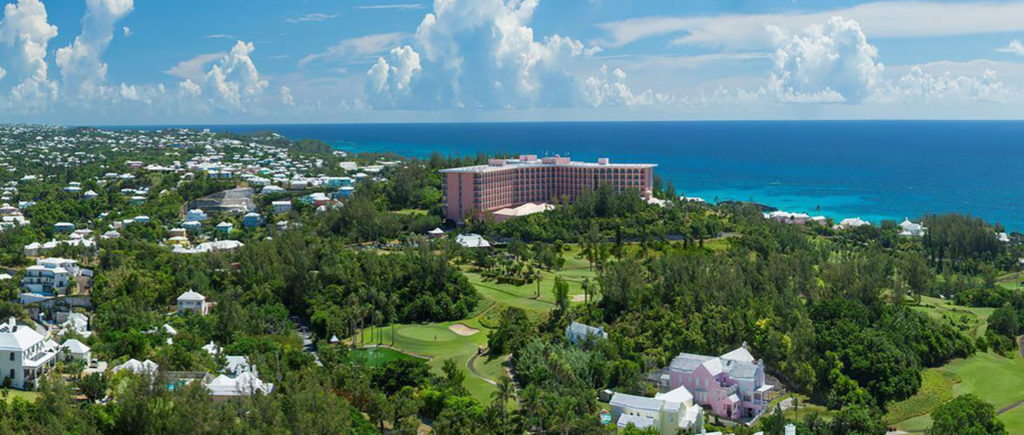
Turtle Hill

